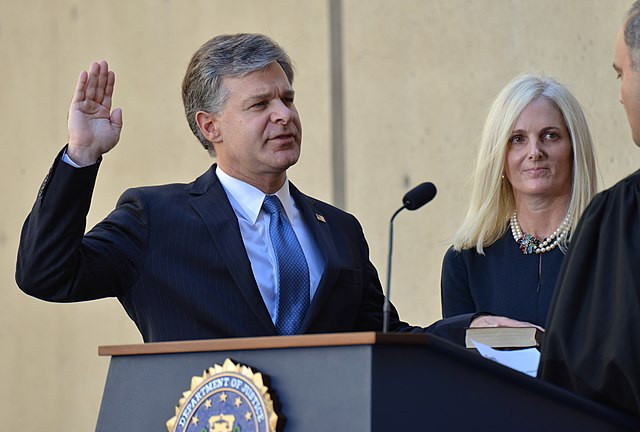FBI Director Christopher Wray announced his resignation on Wednesday, bringing his tenure to an early end amid mounting criticism from President-elect Donald Trump and Republican lawmakers. Wray, who was appointed by Trump in 2017, stated that his decision was guided by his commitment to the FBI's mission and the need to avoid further politicization of the bureau.
"After weeks of careful thought, I've decided the right thing for the Bureau is for me to serve until the end of the current administration in January and then step down," Wray said during a town hall with FBI employees. "This is not easy for me. I love this place, I love our mission, and I love our people."
Wray's resignation will take effect in January 2025, coinciding with Trump's return to the White House. Trump wasted no time responding, declaring Wray's departure "a great day for America" and accusing the FBI under his leadership of weaponizing its powers.
"The resignation of Christopher Wray is a great day for America as it will end the weaponization of what has become known as the United States Department of Injustice," Trump said in a statement to Fox News Digital. "Under the leadership of Christopher Wray, the FBI illegally raided my home, worked diligently on illegally impeaching and indicting me, and has done everything else to interfere with the success and future of America."
Trump has nominated Kash Patel, a former counterterrorism official in his administration, to lead the FBI. Patel, who has been meeting with lawmakers on Capitol Hill to garner support for his confirmation, is expected to bring a significant shift to the bureau's operations.
"Kash Patel is the most qualified nominee to lead the FBI in the agency's history," Trump said. "We want our FBI back, and that will now happen. I look forward to Kash Patel's confirmation so that the process of Making the FBI Great Again can begin."
Patel, who played a key role in counterterrorism missions during Trump's first term, expressed readiness to assume the role. "We look forward to a very smooth transition, and I'll be ready to go on day one," Patel told ABC News.
The transition marks a turning point for the FBI, which has faced heightened scrutiny during Wray's tenure. Wray, whose 10-year term was set to expire in 2027, oversaw the bureau during high-profile investigations, including the January 6 Capitol attack, classified documents probes involving both Trump and President Joe Biden, and hundreds of Chinese espionage cases.
While Wray defended the FBI's independence and objectivity, he faced increasing criticism from Republican lawmakers, who accused the bureau of bias and lack of transparency. Senator Chuck Grassley, the incoming chairman of the Senate Judiciary Committee, previously issued a "vote of no confidence" in Wray, urging him to resign.
"For the good of the country, it's time for you and your deputy to move on to the next chapter of your life," Grassley wrote in a letter on December 9.
Grassley reacted to Wray's announcement by calling it an opportunity for reform. "Wray's departure is an opportunity for a new era of transparency and accountability at the FBI. Future FBI Directors ought to learn a lesson from Wray's mistakes," he said.
As Wray prepares to step down, Deputy Director Paul Abbate will serve as acting FBI director until Patel's confirmation. Abbate, a career official, is expected to retire soon, adding another layer of change to the bureau's leadership.
The nomination of Patel, known for his counterterrorism expertise and strong alignment with Trump's policies, signals a broader restructuring of the FBI under the new administration. Patel's experience includes overseeing missions to eliminate top terrorist leaders and countering threats from foreign adversaries, including China, Russia, Iran, and North Korea.






